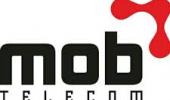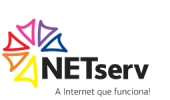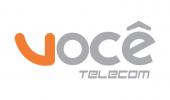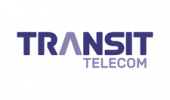TMCnet (EUA) entrevista nosso Presidente-CEO
Being Brazil-based, VoIP Group isn’t that well known to our readers, so let’s start with getting a basic introduction. Please tell us a bit about your business focus and the types of operators you typically serve. VoIP Group is a global pioneer developer of proprietary solutions and services for IP Telephony, most notably a Class IV and V SIP softswitch with real time billing for both pre and post-paid services. The original company started up VoIP Group operations in the United States back in 1998, and received three funding rounds for a total of USD 8,000,000.
VoIP Group gained global relevance after winning a NASA tender in 2001, for which it developed the product MGU, allowing the International Space Station (ISS) to communicate through VoIP with a network of labs in universities, businesses and military bases across the US.
Nowadays our company is the market leader in Brazil, playing a key role in the development of the Brazilian IP telephony service industry for the last 14 years. Our customer base includes most of Brazil’s IP Telephony and PSTN carriers, including Internet providers, cable TV, voice operators and incumbents. To support this, the company has offices in Miami, São Paulo (Brazil), and Cordoba (Argentina). We also operate in Chile, Peru and Japan.
We typically serve any size of ISPs (Internet Service Providers) or cable operator trying to deploy a “multi-play” package (Internet, voice, TV, security, etc.) for customers (corporate and residential) over their IP networks. They can do this interconnecting IP-PSTN with their own POPs and/or through a pure SIP-SIP interconnection to terminate calls at a worldwide level.
As the market leader in Brazil, and having been a VoIP pioneer since 1998, what has been the foundation of your success there, and how are you building on that to enter new markets?
Think global, act local, we could say. VoIP Group started the business from scratch in Brazil so it could build great business relationships with local service providers and evangelize the local market about VoIP technologies. We tell them that if they want to stay in business, deploying VoIP is “not anymore an option, but an obligation”.
In those days – back in 2009 – everybody needed to offer triple or multiple play services, since all services (broadband, voice and video) went over the same IP network. As such, including voice become important; if they didn´t do that, they would lose the customer to the competition. That was the reality of the market at that time - simple enough.
And yes that was our strategy, to build on the strong position in Brazil and from there to enter new markets. This is why we participated with a booth and some partners in IT Expo 2016. We are currently entering Central America and the US, and believe we have the product, the technology and the right price to do that. We also focus strongly on our “real time support services”, which is part of our differentiation in the market.
Since you’ve been developing your technology for so long, it’s largely proprietary. Most VoIP vendors lean towards being open and standards-based. What do you see as the advantages and benefits of being proprietary, both for your company and your customers? Has this held your growth back in any way?
One of our main differentiation points to compete in the market is our proprietary solution VSC (Virtual Service Controller) Softswitch with real time VoIP billing integrated. Creating real time billing based on CDRs (Call Detail Records) is one of our most important features, and it´s integrated in the VSC Softswitch making of it an “all in one” solution.
Billing generates revenues for the service provider, so you need it to be exact. Having used open source solutions they have already lost money that way, so service providers have now seen the importance of having a proprietary developer as a partner that has total control (or property) of the source code. If you don´t have total control of the source code, I mean “end to end”, how are you going to assure an exact billing or the exact functionality of any service or feature?
The performance of our VSC Softswitch and our real time VoIP billing is proven for high volumes, and by that I mean millions of minutes of simultaneous calls. Yes, you can leverage some services using open source, but you have to be open minded to use non-core services already developed on open source and try to homologate them with your proprietary solutions.
Today you see a mixed world (proprietary and open), but for "the core” in your network, I strongly recommend it to be proprietary. We have been doing this a long time, and are now one of the best at developing proprietary software. In Brazil, we have won service provider customers from all the competitors - BroadSoft (News - Alert), VoIPSwitch, Sysmaster, Portaone, etc. -because of our performance for high quality volumes and accurate billing capabilities.
The cloud is impacting everyone now, and VoIP has become another form of SaaS (News Description: cid:[email protected] - Alert). VSC Cloud is your solution that enables operators to get into VoIP without relying on CAPEX or building out a hardware-based infrastructure. Tell us a bit about the trends you’re seeing here and what makes VSC Cloud unique.
Yes, our service provider customers don´t usually have CapEx when using our solutions. We offer them two alternatives:
- 1.All of our services though the Internet on our “VSC Cloud” product. This includes our VSC Softswitch with real time VoIP billing integrated, and/or our Centrex/Hosted IP PBX (News -Alert)/Class V solution, hardware and data center services.
- 2.We give them the option of installing our VSC Softswitch with VoIP billing integrated and/or our Centrex/Hosted IP PBX/Class V module in their own data center, or in their “third party” data center, as well as on their own hardware.
We have been successful with both options, and customers can rent or “pay as they go”, depending on the capacity they need.
Cloud-based VoIP also offers flexibility and scale that operators didn’t have before. Going forward, how you plan to grow VoIP Group, and what new services or applications are you seeing demand for from your customers? In my view, it´s important to maintain flexibility and offer customers different alternatives so they can remain competitive, as well as stay within their budgets. They need to take advantage of the latest technologies, so they need their technology partners to have this kind of flexibility.
Going forward, we keep growing our current solutions, adding new features and growing in our integration with mobile applications. We are not only homologating and integrating new mobile applications (such as SIP client applications), but also developing some of them.
We are also expanding our Web services integrations with other providers of ERP and CRM platforms. At present, we have developed more than 80 Web services that are widely used by our customers and are always looking for more integrations that will help them become more successful.
Jon Arnold (News - Alert) is principal of J Arnold & Associates, an independent telecom analyst and marketing consultancy with a focus on IP communications, and writes the Analyst 2.0 blog. Previously, he was the VoIP program leader at Frost & Sullivan (News - Alert).

































































